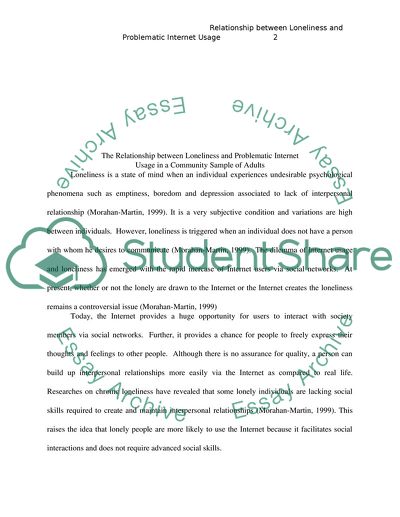Cite this document
(The Relationship between Loneliness and Problematic Internet Usage Research Paper, n.d.)
The Relationship between Loneliness and Problematic Internet Usage Research Paper. Retrieved from https://studentshare.org/social-science/1737470-social-psychology-internet-and-loneliness
The Relationship between Loneliness and Problematic Internet Usage Research Paper. Retrieved from https://studentshare.org/social-science/1737470-social-psychology-internet-and-loneliness
(The Relationship Between Loneliness and Problematic Internet Usage Research Paper)
The Relationship Between Loneliness and Problematic Internet Usage Research Paper. https://studentshare.org/social-science/1737470-social-psychology-internet-and-loneliness.
The Relationship Between Loneliness and Problematic Internet Usage Research Paper. https://studentshare.org/social-science/1737470-social-psychology-internet-and-loneliness.
“The Relationship Between Loneliness and Problematic Internet Usage Research Paper”, n.d. https://studentshare.org/social-science/1737470-social-psychology-internet-and-loneliness.


